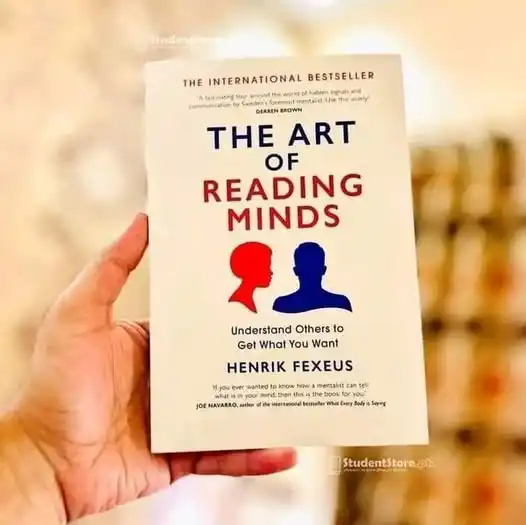
Tabriba Books
June 10, 2025 at 08:43 AM
The Art of Reading Minds" by Henrik Fexeus isn't about genuine psychic abilities but rather about the powerful combination of observation, psychology, suggestion, and nonverbal communication that allows skilled mentalists to create the illusion of reading minds.
Here are 6 key lessons you can glean from the book about human behavior and influence:
GET PDF https://wa.link/042dz9
1. Observation is Key to Understanding: Fexeus emphasizes the importance of meticulous observation of both verbal and nonverbal cues. Paying close attention to body language (micro-expressions, posture, gestures), tone of voice, and inconsistencies in what people say versus how they act provides valuable insights into their thoughts and feelings, even if they aren't consciously revealed.
2. The Power of Suggestion and Framing: Our minds are susceptible to suggestion. Fexeus explains how carefully worded questions and statements can subtly guide people's thoughts and influence their responses. By framing choices and expectations in a certain way, you can increase the likelihood of a desired outcome or make certain thoughts more accessible in their minds.
3. Understanding Cognitive Biases and Heuristics: The book touches upon how our brains often rely on mental shortcuts (heuristics) and are prone to predictable biases. Understanding these cognitive tendencies, such as confirmation bias or anchoring bias, allows you to anticipate how people might think or react in certain situations and even subtly exploit these biases for influence (ethically, of course, in the context of understanding human behavior).
4. Building Rapport and Trust: Establishing a connection with someone is crucial for effective communication and influence. Fexeus highlights techniques for building rapport, such as mirroring body language, active listening, and finding common ground. When people feel understood and comfortable, they are more likely to be open and their subtle cues become more readable.
5. The Art of Asking the Right Questions: Skilled "mind readers" often use carefully crafted questions to narrow down possibilities and guide people's thinking without revealing their own assumptions. Learning to ask open-ended questions, leading questions, and questions that encourage specific types of responses is a powerful tool for gathering information and subtly directing attention.
6. The Illusion of Certainty and the Role of Ambiguity: Fexeus reveals how creating the illusion of mind reading often involves a degree of ambiguity and skillful interpretation. General statements that resonate with many people, combined with keen observation of their reactions, can create a powerful sense of being understood.
GET PDF https://wa.link/042dz9
